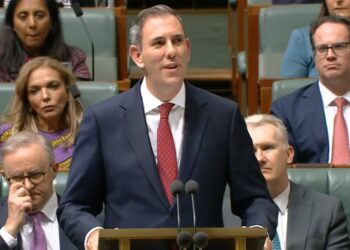According to research from the Association of Superannuation Funds of Australia (ASFA), young Australians are facing greater risks of costly financial cyber crime due to their increasing reliance on and trust in social media for financial advice.
“We commissioned this research to better understand where people of different age groups are getting help to make decisions on their super. It’s alarming to see the reliance of social media so prevalent for people under 35 but it also illustrates their desire for information,” said ASFA chief executive Mary Delahunty.
The research also found all age cohorts, not just young Australians, are under-advised, which ASFA said highlights the “urgent need to make financial advice from trusted sources more accessible and affordable to ensure favourable retirement outcomes for all Australians”.
According to the research, 49 per cent of Australians aged 18–34 had never consulted any source of advice concerning their superannuation and retirement. The same was true for 54 per cent of those aged 35–49, 51 per cent of those aged 50–64, and 42 per cent of Australians 65 and older.
“It’s concerning to see that around half of Australians of all ages have never accessed financial advice. Quality financial advice can make the difference between financial insecurity and a comfortable retirement,” Delahunty said.
While all ages are under-advised, according to the research, Australians aged 18–34 are around twice as likely to source financial advice from social media than those just one bracket up in the 35–49 age range.
Of the 51 per cent of those aged 18–34 who say they have ever sourced financial advice relating to retirement or superannuation, ASFA said social media was the second-most common (15 per cent) source of advice, after friends and family (36 per cent).
Just 6 per cent had sought advice from professional advisers, and 6 per cent had been advised through their super funds.
“We are seeing a much higher degree of trust in social media-sourced advice from younger Australians, with 33 per cent of those in the 18–34 cohort saying they trust social media advice, compared to 18 per cent in the 35–49 cohort,” said Delahunty.
“As an industry, we have seen a number of examples of high-pressure marketing tactics, including targeting account holders through social media, which ASIC has identified as a growing concern.”
Citing the Australian Institute of Criminology, ASFA said younger Australians are “consistently more likely to report having been cyber crime victims than their older counterparts”.
“Most scams begin through interactions over platforms like Reddit, TikTok, and X,” Delahunty said.
“Young people’s personal trust in social media advice, combined with an increased likelihood to seek advice over social media, makes them particularly vulnerable to cyber crime and exploitation that threatens their superannuation balances and consequently a comfortable retirement.”
Super funds the answer, according to ASFA
The answer, ASFA said, is increasing the availability of “low-cost, high-quality financial advice, including through super funds”.
“The problem that underpins both young Australians’ reliance on social media for financial advice and all age groups’ lack of advice is that advice from trusted sources is too costly and difficult to access,” Delahunty said.
Following the passage of the first Delivering Better Financial Outcomes (DBFO) legislation earlier in July, Financial Services Minister Stephen Jones said the second tranche of reforms “will further increase access and affordability of financial advice and will be developed over the second half of the year”.
“This includes the government’s commitment to reform statements of advice, modernise the best interests duty and remove the safe harbour steps, and increase the provision of advice by financial institutions,” Jones said at the time.
“The government will ensure these reforms provide access to safe, affordable and quality financial advice to deliver better outcomes for the millions of Australians seeking financial advice and information.”
According to ASFA, super fund trustees have existing obligations to act in their members’ best financial interests and a specific duty to assist members with their retirement needs. It added that these duties provide a “high level of consumer protection for members receiving advice”.
“We recently saw progress being made on this problem with the passage of the first tranche of the Delivering Better Financial Outcomes Bill. But there is still more work to be done, and ASFA looks forward to working constructively with the government on the next tranche of changes,” Delahunty said.




ASIC wanted to price financial advice out of the reach of “normal people”. They have succeeded. Can’t blame the people who don’t know any better when they get scammed but its also not my problem, even though ASIC will end up finding a way for me to pay for the reimbursement based upon the Dixon fiasco.
Not many people under 35 can afford the services of financial advisors. Also, many are more interested in trying to save for a home than save for retirement.
lf I’m honest I don’t want a 35 year old unless their kids of clients or they have at least $300K let them flocked to the charlatan finfluences on tik tok, good luck to them.
Are Under 35s having 10% plus of their earnings taken denying them home ownership and delaying having children – Superannuation Contributions should be voluntary? Let them have their own money.
Surprised they are researching anywhere – they claim to know everything anyway….good luck to them!!